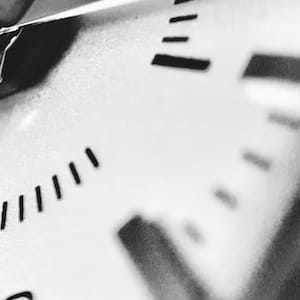time of one’s life: Idiom Meaning and Origin
What does ‘time of one's life’ mean?
The idiom "time of one's life" refers to a period or experience of great enjoyment or excitement. It implies that someone is having a fantastic and memorable time, often in a specific event or activity.

Idiom Explorer
The idiom "prime of life" refers to the period of time when a person is in their most productive or successful stage of life, typically in their middle age. This is the time when individuals are at their peak in terms of physical, mental, and emotional abilities.
The idiom "one's days are numbered" means that someone is likely to die soon or that their life will come to an end in the near future.
The idiom "moment in the sun" means a brief period of fame, success, or recognition, often followed by a decline or being overshadowed by others.
The idiom "love of one's life" means the person who is considered the most important and significant romantic partner in someone's life.
The idiom "living end" refers to someone or something that is extremely entertaining, exciting, or impressive. It can describe a person, event, or experience that is considered incredibly enjoyable or amusing.
The idiom "live the dream" means to experience and enjoy a lifestyle or situation that is ideal or extraordinary, often associated with achieving one's goals or desires.
The idiom "live one" is typically used to describe someone who is adventurous and willing to take risks. It refers to a person who embraces life fully and seeks out new experiences and opportunities, often without hesitation or fear. They have a zest for life and enjoy living in the moment.
The idiom "live it up" means to enjoy oneself or have a good time, often by indulging in luxuries or exciting activities. It is often used to encourage someone to make the most of a particular situation or to have a memorable experience.
The idiom "life of the party" refers to someone who is energetic, entertaining, and the center of attention at social gatherings.
Hidden Moments
The idiom "prime of life" is another expression that relates to the concept of time in one's life. It refers to the period when someone is at their peak physical, emotional, and mental state. This can vary depending on individual circumstances and can occur at any age. However, it is commonly associated with the years between young adulthood and middle age.
During the prime of life, individuals often experience a sense of vitality, energy, and purpose. It is a time when they are at the height of their abilities, both professionally and personally. This period is characterized by a sense of fulfillment and achievement, as people work towards their goals and aspirations.
In the prime of life, people are often at their most productive and engaged. They have acquired knowledge and skills through their earlier experiences, and they are able to apply them effectively. This period is often marked by significant milestones such as establishing a career, starting a family, or achieving personal goals.
The idiom "change of life" is yet another phrase closely related to the concept of time and its impact on one's life. It refers to a period of transition and transformation, typically associated with menopause in women. This stage represents a significant shift in a person's life, both physically and emotionally.
During a change of life, individuals may experience a variety of physical and emotional symptoms. These can include hot flashes, mood swings, and changes in menstrual patterns. It is a time of adjustment, as the body undergoes hormonal changes that mark the end of reproductive ability. This stage is unique to women and can have varying effects on their overall well-being.
In addition to its association with menopause, the idiom "change of life" can also be used more broadly to describe any major life transition. This can include career changes, moving to a new location, or experiencing a significant loss. It signifies a period of upheaval and adaptation, as individuals navigate through unfamiliar territory and adjust to new circumstances.
The idiom "in all one's born days" is a phrase that adds emphasis to the concept of time in one's life. It is used to convey a sense of astonishment or incredibility, emphasizing the rarity or uniqueness of a particular experience. This expression suggests that the described event is so extraordinary that it has never been witnessed or encountered before.
When someone says "I have never seen anything like it in all my born days," they are conveying a sense of awe or amazement. It implies that the described event or situation is beyond the realm of their previous experiences. This idiom highlights the significance of the moment and emphasizes its exceptional nature.
Finally, the idiom "good life" is a phrase that relates to the quality of one's existence and the enjoyment derived from it. It encompasses a holistic sense of well-being, encompassing physical, emotional, and material aspects. The good life is subjective and can vary from person to person, but it generally signifies a state of contentment and satisfaction.
Achieving the good life often involves pursuing personal goals, maintaining positive relationships, and prioritizing self-care. It is about finding a balance between work and leisure, and cultivating a sense of gratitude for what one has. The good life is not necessarily defined by material wealth, but rather by a sense of fulfillment and happiness.
The idiom "time of one's life" encompasses a period of enjoyment and fulfillment in one's existence. It signifies a time when someone is experiencing great happiness or excitement. The related idioms "prime of life," "change of life," "in all one's born days," and "good life" further explore the various dimensions of time in one's life, including peak experiences, transitions, astonishments, and overall well-being. These idioms capture the essence of the human experience and remind us of the significance of the moments that shape our lives.
Example usage
Examples of how the idiom "time of one's life" can be used in a sentence:
- She had the time of her life on her vacation to Hawaii.
- They had the time of their lives at the music festival.
- He will have the time of his life at the amusement park.
More "Experience" idioms



